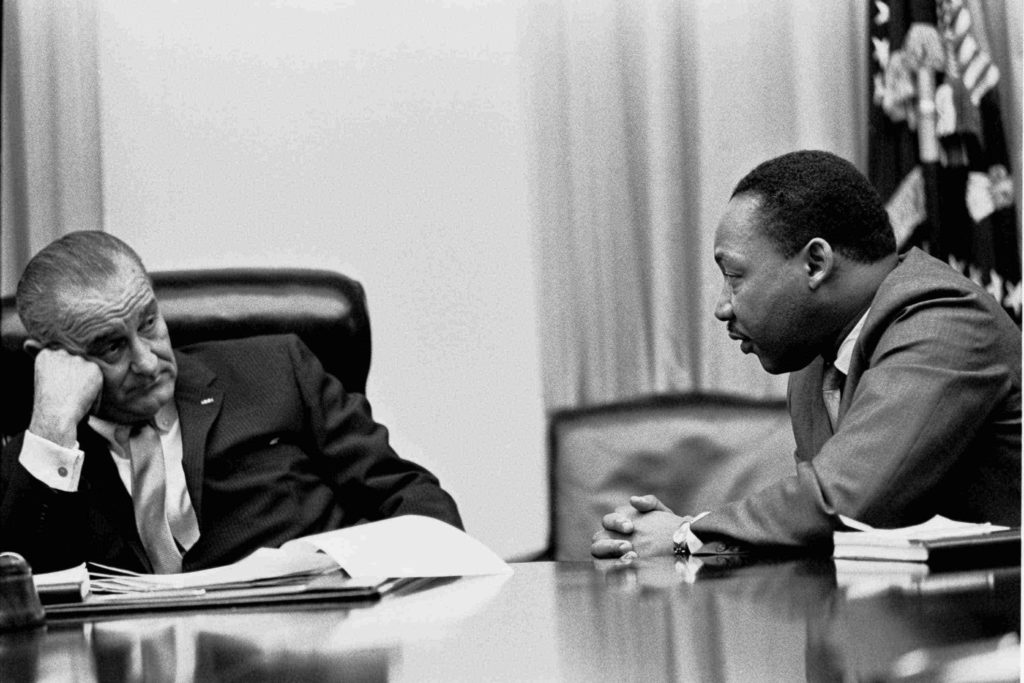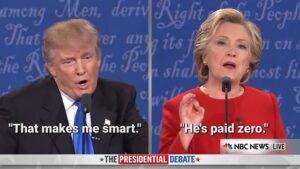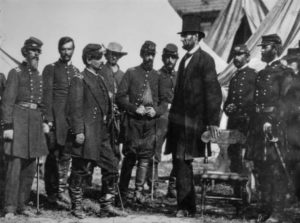Why are people with the same economic interests so divided? It’s not “economic anxiety”; a vote in Iowa is the equivalent of 5 California votes. The answer is grounded in American history spanning back 300 years when racial animosity was harnessed by elite landowners to destroy class solidarity and prevent rebellions. Divided, those with the same economic interests fell. This covert phenomenon rooted in the Reconstruction Era when the KKK emerged with lynchings because slaves were seen as competition to poor whites, culminated in major whole redistributions of wealth as experienced in the 1980s – through Nixon’s Southern strategy of white political realignment. Not much has changed as “economically anxious” coal-country Trump voters march on the streets chanting nazi mantras, call brown countries “sh*tholes,” and tell minorities to get out of ‘their’ countries. Convinced that it’s not the bipartisan iron triangle of excessive corporate influence, it’s not the crony oligarchy corrupting the democratic process running their economic prospects, it’s minorities as they’ve been indoctrinated. Thus, the white working class American votes out of resentment, against their best interests for the party of slavery, Jim Crow, and segregation (they realigned) that pretends to care about said coal-country. While Democrats offer condescending rhetoric worthy of the “East-coast lib” caricature, tokenism, and identity politics over economic justice.
“If you can convince the lowest white man he’s better than the best colored man, he won’t notice you’re picking his pocket. Hell, give him somebody to look down on, and he’ll empty his pockets for you.” – Franklin D. Roosevelt
During the Reconstruction Era, freed slaves were given “40 acres and a mule,” the first policy offering economic justice to African Americans in the form of land redistribution. But racist sentiment did not end with the 13th Amendment. Poor, non-land owning white men saw these policies being enacted and subsequently emerged the KKK. Equality of opportunity felt like oppression. Slaves were seen as competition too poor whites, and they became Southern Democrats (or modern-day Republicans), instead of standing in solidarity with other poor blacks. This, in short, is the history of racial class division, the source of the 1980s Southern strategy, and the 2016 election-winning Trump strategy targeting minorities.
What does all of this well-curated racism mean? A skyrocketing wealth gap where the rich get richer and the poor get poorer as they fight over Muslim bans and border walls aiming to keep brown people out. It’s not the “swamp” ruining my economic prospects, it’s minorities. It’s not my grades ruining my chances of getting into college, it’s minorities. In this alternative-reality all brown people are threats to the in-group, the Muslim ban which bans zero of the countries that have caused terrorism in the US nor the one that caused 9/11 because Trump has business ties there, is good because screw refugees that have never caused a terrorist attack in the U.S. in the last 30 years in the US. A $35 billion safety-blanket of a wall rendered useless by net negative illegal-immigration, the fact that immigrants have a lower crime rate than native-born Americans, and half of illegals fly here and overstay Visas (meaning they’ve already been vetted) is good because it’s a monumental ‘screw you’ to more brown people.
These are the real identity politics – the politics of fear, the politics of alternative facts raised as a modern-day Southern strategy to keep whites voting against their best interest, to keep them voting for their only interest under the imagined threat of immigrants.
Franklin Delano Roosevelt’s revelation stands tall, “If you can convince the lowest white man he’s better than the best colored man, he won’t notice you’re picking his pocket. Hell, give him somebody to look down on, and he’ll empty his pockets for you.” And empty their pockets they have: with transfer of wealth tax cuts in the ‘80s were the poor were left behind and the top 1% saw their income triple, with the Bush tax cuts which raised unemployment to 6%, and finally the failing Kansas trickle-down experiment of 2012 which caused job growth and personal income to lag the US economy. Most recently the MAGA tax-cut which laid off almost 10,000 employees and closed 63 Walmart stores. They’ll vote against job creation, against the Obamacare they’re on because “Obama,” and vote for cuts to their own Social Security.Who knew corporate tax cuts didn’t increase demand/a need for more hiring?
While Republican appeals to racism drew aggrieved racists to the GOP, the Democratic party ensured they had no incentive to leave. By pushing for their interpretation of social justice without economic reform, they’ve shed the New Deal-style agenda which successfully gave birth to a middle-class and watched it flourish. Democrats don’t have actual solutions to address the causes of poverty, the causes of bankruptcy-inducing healthcare, of widening inequality – they have band-aids. They simply pad problems with government money instead of offering progressive solutions directly addressing the root cause, as well as corruption. Instead of cracking down on price gouging and regulating the oil industry more strictly, they increase LIHEAP funding. Instead of Regulating pharmaceutical prices to lower the cost of American medicine, they throw money at each other. It’s all thanks to the unbreakable, bipartisan, iron triangle. Both parties take money from the same donors and pretend to care about working-class interests.
This, again, is not to say racists crawled to a white supremacist, historically incompetent Fuhrer because of economic anxiety of course. The Democratic party is still light years better than Republicans in terms of the working class (which isn’t saying much.)
Pretending like the Midwest was driven to such extremes because of “jobs” is complete bullcrap. Are the 95% of Democrat-voting black people wealthy elites? Are there are no working class democrats desperate for jobs? Are they not desperate for jobs? There are, but they’re not driven by racism – much less driven by racism to ‘empty their pockets’ for the exploited rich whose wealth will ‘trickle-down.’ Low income minorities did not elect Trump, “cultural” anxiety did. In fact, “views on immigration, Muslims drove white voters to Trump.”
As many tokens hiding corporatist, centrist agendas the Democrats posture for 2020 with the promise of change, there can be no equality without economic justice. The same people who gave us brought you winning Hillary are now pushing big Wall Street money recipients who decline to prosecute fraudsters like Munich for 1,000 cases of mortgage fraud, Senators who vote against lower pharmaceutical prices. They’re doing this and expecting something other than a rehashing of the 2016 election.
After the passage of the 1964 Civil Rights Act, Martin Luther King Jr. felt that the de-jure fight wasn’t over. The Reverend held a radical bastion of economic justice as the ultimate goal, and in the weeks before his assassination, he was advocating around an economic message for all people. “Now our struggle is for genuine equality, which means economic equality. For we know that it isn’t enough to integrate lunch counters. What does it profit a man to be able to eat at an integrated lunch counter if he doesn’t earn enough money to buy a hamburger and a cup of coffee?” He went on to start the Poor People’s Campaign in 1967 which demanded a progressive agenda based on jobs and higher wages.
Although he went further in his calls for universal basic income, his message did not stray from the core truth – a man isn’t free if he can’t afford the basic necessities to survive. As Anatole France is quoted, “The law, in its majestic equality, forbids rich and poor alike to sleep under bridges, to beg in the streets, and to steal their bread.”
The only way to lower partisan divide is through an economic message; no gimmicks, no pure opposition campaigns, and no identity politics. To stand behind ideas the majority of Americans support. Fifty-eight percent of Americans support single-payer, 88% oppose cuts to Social security, voters in red states want Medicaid expanded, 68% think the wealthy pay too little taxes, 64% support regulating greenhouse gas emissions,58% support breaking up big banks, 63% support raising the minimum wage to $15.00, 53% support labor union law, 64% think corporations don’t pay their fair share.







Leave a Reply